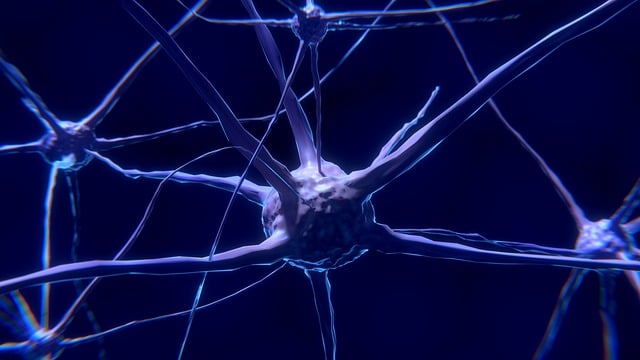What is Bipolar Disorder?
Bipolar disorder is a mental illness characterized by extreme highs and lows that significantly impact a person’s activity levels, sleep patterns, thoughts, and behavior.
It can have a profoundly negative effect on daily life. There are various levels and types of bipolar disorder, making it crucial to understand these distinctions.
Let’s discuss the two primary types: Bipolar I and Bipolar II.
Bipolar I Disorder:
According to the DSM-5, Bipolar I is marked by episodes of mania. This means experiencing an expansive or elevated mood, which can sometimes be irritable, lasting for seven days or more. The duration and intensity of these symptoms are essential criteria.
For a diagnosis of Bipolar I, a person must exhibit three or more manic symptoms during these seven days. These symptoms include:
1. Distractibility: The individual struggles to sit still, pay attention, or complete tasks. They are easily sidetracked.
2. Impulsivity: A person may make hasty decisions without considering the consequences, potentially putting themselves in difficult situations.
3. Grandiosity: This symptom refers to an inflated sense of self-worth. In severe cases, individuals may believe they are a deity or a superhero, but it can also manifest as simply feeling exceptionally high about oneself.
4. Flight of Ideas: During a manic episode, individuals may bounce from topic to topic in conversation, often making little sense. In a short discussion, you might hear a multitude of unrelated ideas expressed rapidly.
Bipolar II Disorder:
In bipolar II, instead of experiencing full-blown mania, a person experiences hypomania.
The main difference is the duration: bipolar I mania lasts seven days or more, whereas bipolar II hypomania lasts at least four days.
1. Grandiosity: Hypomania presents with grandiosity, rapid speech, and other manic symptoms, but it’s less severe than the mania seen in bipolar I.
2. Depressive phase: For a person to be diagnosed with bipolar II, they must experience at least four days of hypomanic symptoms and meet the criteria for a major depressive episode. This may involve feeling severely depressed, losing interest in activities, experiencing sleep irregularities, changes in appetite, or even suicidal thoughts.
It’s a misconception to think bipolar disorder follows a strict pattern of ups and downs. Instead, someone with bipolar disorder might experience periods of mania, return to a stable mood (euthymia), and then experience depression again.
Mood Episodes:
Bipolar disorder is a mood disorder characterized by intense emotional periods known as mood episodes.
There are three types of mood episodes:
- Manic,
- Hypomanic (which is less severe than manic episodes)
- Depressive.
Bipolar I disorder is the most extreme form, with some manic episodes lasting up to seven days.
Bipolar II disorder consists of hypomanic and depressive episodes.
If you suspect that you or someone else may have bipolar disorder or any mental health condition, we strongly encourage you to seek help from a qualified mental health professional.
Signs of bipolar disorder:
1. Mood Swings:
Intense highs and extreme lows are significant indicators of bipolar disorder. Although hormonal changes or other factors can also cause mood swings, individuals with bipolar II disorder typically experience alternating periods of hypomania, depression, and regular functioning. Frequent mood swings that disrupt sleep and daily activities may suggest bipolar disorder.
2. Cycles of Depression:
Do you experience cycles of manic and depressive episodes? Symptoms of a depressive episode can include strong feelings of guilt, worthlessness, disinterest in activities once enjoyed, and even thoughts of suicide. Seek treatment for depressive episodes, as they may sometimes lead to a misdiagnosis of major depressive disorder. However, if depressive symptoms alternate with manic episodes over several weeks, it may indicate bipolar disorder.
3. Risky Behavior:
During manic episodes, people with bipolar disorder are more likely to engage in risky behaviors. A study by the University of Oxford found that individuals with bipolar disorder participated in more gain-oriented risky activities than those without the disorder. Impulsive financial decisions, such as risky investments and gambling, as well as dangerous actions like reckless driving, are common examples.
4. Periods of Intense Multitasking and Energy:
During manic episodes, you might find yourself making more plans than you can manage. If you have bipolar II disorder, you may experience less intense manic episodes, also known as hypomania. While you might not notice a difference in your increased energy and multitasking ability, those around you likely will.
5. Grandiosity:
Grandiosity refers to an exaggerated sense of one’s importance or abilities. It is a characteristic often associated with conditions like narcissistic personality disorder, but it can also be a symptom of bipolar disorder. This feeling typically arises during manic episodes.
6. Talking Faster Than Normal:
During manic episodes, you may speak more quickly or loudly. You might notice irregular speech patterns, such as trailing off mid-conversation or talking excessively. While you may not be aware of your accelerated speech, friends or family may recognize the change.
7. Difficulty Concentrating:
During depressive episodes, a lack of energy can hinder focus and result in forgetfulness. Conversely, during manic episodes, an abundance of energy can make it hard to concentrate on a single task.
8. Extreme Irritability or Agitation:
Do you find yourself feeling irritable a lot? If you’re experiencing this along with other symptoms, it could be a sign of bipolar disorder. This irritability might show up as physical restlessness, like pacing or wringing your hands.
9. Irregular Sleep Patterns:
Having trouble sleeping or sleeping too much, especially when combined with other symptoms, could be a sign of bipolar disorder.
During manic episodes, you might feel super energized even after just a few hours of sleep.
Conversely, during depressive episodes, you may find yourself sleeping more than usual and still feeling tired or finding it hard to get out of bed.
If you notice these signs in yourself or a loved one, it’s important to reach out for professional help.
Many people experience changes in sleep patterns and appetite, particularly during manic episodes. When in a manic state, individuals may function on very little sleep and have varying food intake, sometimes leading to a loss of appetite. Various factors, including certain medications, can also contribute to a reduced appetite.
Frequently Asked Questions:
How is Bipolar Disorder Treated?
Bipolar disorder is treatable with psychotherapy and medications. The first choice of medication is usually mood stabilizers like lithium. Anticonvulsant medications and antipsychotics can also be used. Continuous treatment is important, and any mood changes should be reported immediately to a physician. Psychotherapy, including cognitive behavioral therapy and family therapy, provides support and education to people with bipolar disorder and their families, increasing mood stability and improving overall functioning.
How is bipolar disorder diagnosed?
- Currently, bipolar disorder is diagnosed based on symptoms, illness history, and family background. The disorder is not diagnosed through blood tests or brain scans.
- Bipolar disorder has four basic types:
- Bipolar I Disorder,
- Bipolar II Disorder,
- Bipolar Disorder Not Otherwise Specified (BP-NOS), and Cyclothymic Disorder.
- Rapid-cycling bipolar disorder occurs when a person has four or more episodes of major depression, mania, hypomania, or mixed symptoms within a year.
What is the difference between depression and bipolar disorder?
The key distinction between bipolar disorder and major clinical depression is the presence of manic episodes. This means that someone can’t be diagnosed with bipolar based solely on depression. However, if they have one manic episode that meets the DMS-IV criteria, they can be diagnosed with bipolar disorder.
What are the side effects of Medication?
The administration of any medication involves a risk-benefit assessment. In the case of bipolar disorder, not treating the illness has worse consequences than treating it.
Approved drugs have been shown to have a reasonable level of tolerance in numerous studies. However, some patients may experience discomfort that may require withdrawing or changing the medication.
Most patients can find an effective treatment that is reasonably tolerated, but some adverse reactions, such as slight tremors or weight gain, may occur.
What happens if I forget a dose?
Forgetting a single dose of lithium, carbamazepine, or other stabilizer during an asymptomatic period is not harmful if it doesn’t become a habit. However, forgetting an anti-mania medication can worsen symptoms, so it’s recommended that the patient doesn’t solely manage their medication during this phase.




